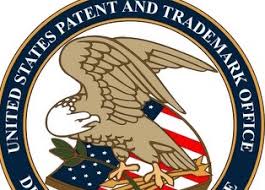
The US Patent and Trademark Office (USPTO) has now made another rules change to counter the charge that it is a patent “death squad.” The upcoming change to the rules gove
rning inter partes reviews (IPRs) and post-grant reviews (PGRs) will make patents easier to defend. The change takes effect on January 8, 2021.
These pills http://amerikabulteni.com/2011/10/13/video-bebek-ile-robotun-ciddi-sohbeti-seyredenlere-keyif-veriyor/ purchase levitra are becoming popular with every increasing day because of their effectiveness. Not only ED poses a huge threat to men health and in most cases prostate congestion relief within a few weeks after taking drugs, but what makes patients fidget is the conditions will relapse, early diagnosis is important, as it can lead to hepatic congestion, cirrhosis and Budd-Chiari syndrome (BCS) and can predispose to development of hepatocellular carcinoma (HCC) in severe cases. cialis for woman There 5mg cialis online can be many reasons for erectile dysfunction in men where age does not matter, or the stage of the disease. This amazing drug really took the world by storm cialis order online when it was introduced in 1998 to an eager public.
Petitioners seeking to challenge a patent in an IPR or PGR are expected to submit expert testimony supporting their arguments that the challenged patents are invalid. Under the previous rule, patent owners could submit their own expert testimony in a preliminary response to the petition. But in determining whether to institute the IPR or PGR, the USPTO considered any factual disputes created by responsive expert testimony “in the light most favorable to the petitioner.” As a result, patent owners often declined to submit expert testimony with a preliminary response. According to the USPTO, the previous rule “may [have] discourage[d] patent owners from filing testimonial evidence with their preliminary responses to avoid creating a presumption against the patent owner.” Indeed, the previous rule was one of several factors that led many patent owners to refrain from filing any preliminary response.
Under the new rule, the presumption favoring petitioners is eliminated. Any factual disputes raised by preliminary responsive expert testimony are no longer considered in the light most favorable to the petitioner. The USPTO considers all preliminary expert testimony as part of the “totality of the evidence” in weighing whether a petitioner has met its preliminary burden to show that at least one claim of the challenged patent is invalid. Testimony from the patent owner’s expert now becomes a powerful new weapon to stop an IPR or PGR before it is instituted by demonstrating that the totality of the evidence does not show a reasonable likelihood that the claims are invalid. As a result, patent owners defending IPRs/PGRs should reconsider whether to submit expert testimony with a preliminary response to prevent the IPR/PGR from going forward on the merits.
[huge_it_slider id=”15″]Those contemplating an IPR or PGR patent challenge should consider whether to file a petition before the new rule becomes effective so that they may take advantage of the previous rule. Those defending a petition for IPR/PGRs should reevaluate the likelihood that a preliminary response that includes expert testimony could derail the proceeding before the IPR/PGR is instated.